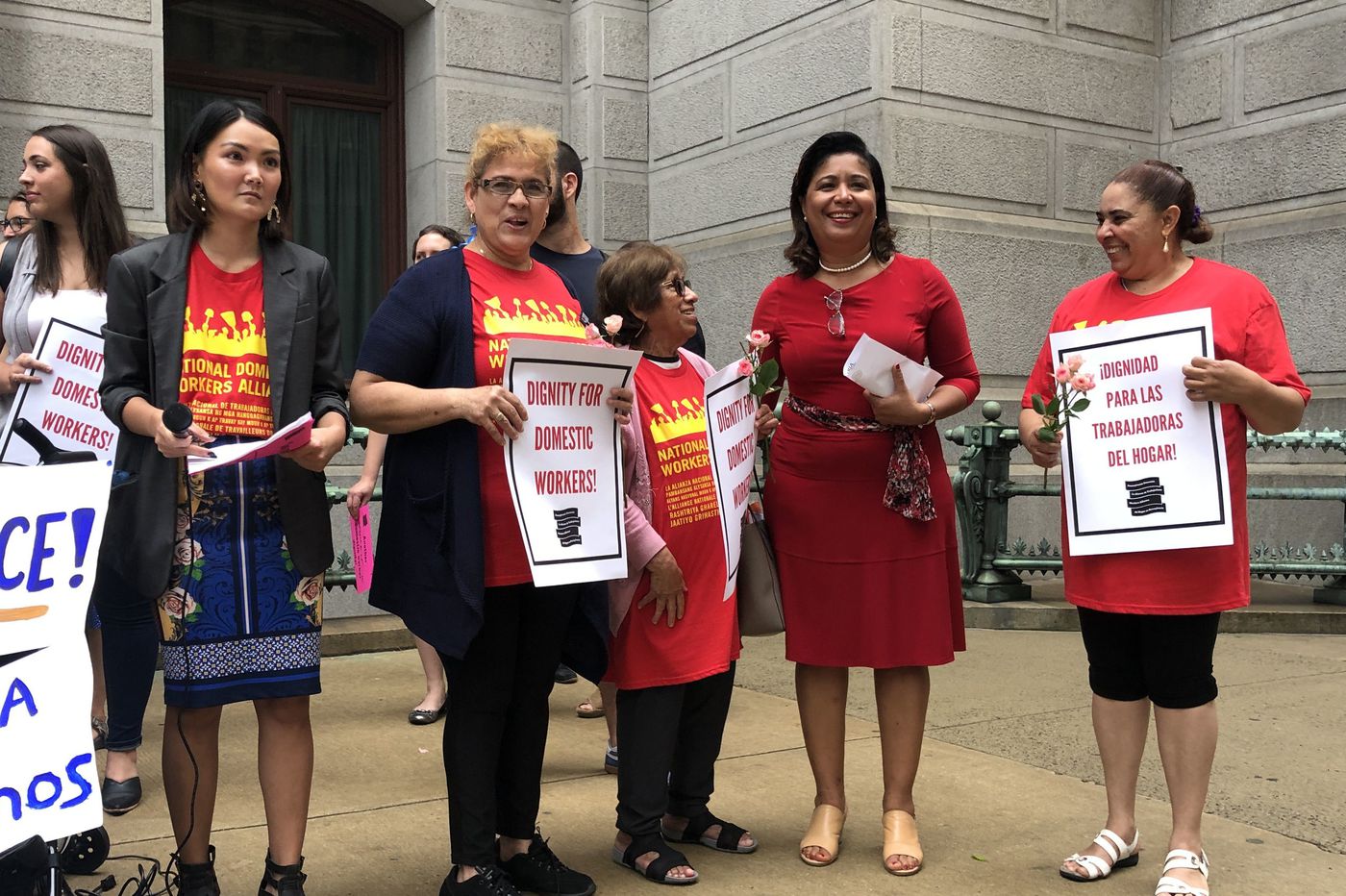
The Philadelphia City Council has passed a Domestic Workers Bill of Rights. This is the result of a year-long campaign waged by the Pennsylvania Domestic Workers Alliance, which is affiliated with the National Domestic Workers Alliance. The passage of the bill is a gigantic win for the city’s 16,000 domestic workers, including housekeepers, gardeners, and those who care for children and the elderly.
The new legislation requires employers to have a written contract outlining scheduling, pay rates, and more. Employers must now provide two weeks notice before termination. The bill stipulates requirements for paid time off, meal, and rest breaks.
Nationally, domestic workers lack basic protections. The federal government does not guarantee them the right to a minimum wage, or to unionize. They do not have the right to overtime pay, nor do they have protection from discrimination and harassment. There are over 2 million domestic workers in the U.S. workforce, and they are disproportionately women, immigrants, and people of color. They are some of the most vulnerable workers in the country.
As with other categories of workers, we can see that the only way to change this situation is to organize and fight, as the Philadelphia Domestic Workers Alliance is doing.
